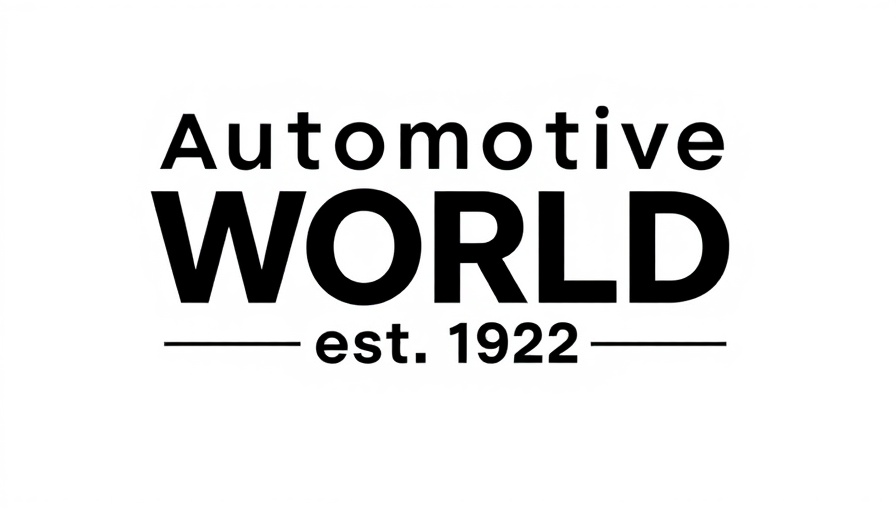
Fueling the Future of Motorsport: A Technical Partnership Unveiled
In a groundbreaking move for the racing world, AVL RACETECH and RAVENOL have announced a multi-year technical partnership aimed at advancing hydrogen combustion technology for sustainable racing applications. This collaboration is not just about improving performance; it's also aligned with global sustainability initiatives within the motorsport industry.
Driving Sustainability in Motorsport
Both AVL and RAVENOL share a profound commitment to reducing emissions and fostering environmentally friendly technologies. This partnership is particularly timely given recent industry shifts towards alternative powertrains. By merging AVL's expertise in hydrogen combustion engines with RAVENOL's high-performance lubricants—such as Racing ECO oils derived from renewable materials—the duo is poised to create more efficient and sustainable racing solutions. These innovative oils aim to significantly enhance the longevity and efficiency of hydrogen-powered engines, thereby improving overall performance while aligning with environmental goals.
Racing on Hydrogen: Potential and Predictions
Dr. Paul Kapus of AVL emphasizes a promising future for hydrogen engines, asserting that the capabilities of hydrogen combustion are still largely untapped. Current developments indicate that hydrogen engines could achieve power outputs exceeding 150 kW/l, setting the stage for unprecedented performance in motorsport. As teams prepare for competitions, the introduction of hydrogen engines could redefine racing dynamics.
Technological Innovations in Racing
This partnership could mirror the innovative paths taken in educational racing events like Formula Student, where hydrogen regulations are being developed to encourage student teams to design hydrogen-powered vehicles. The first hydrogen-powered racing cars are expected to compete in 2025, demonstrating a clear pivot towards hydrogen as a feasible alternative to traditional fuel systems. This could revolutionize how future engineers and automotive professionals perceive powertrain technologies and their applications.
Unlocking Opportunities in Motorsport
The collaboration between AVL and RAVENOL represents a strategic opportunity to explore the integration of hydrogen technologies across diverse racing disciplines. By continuously refining hydrogen combustion engines and developing suitable lubricants, they are not only racing towards a greener future but also attracting sponsorships from brands interested in sustainable practices.
Catalyzing Change and Shaping The Industry
As the automotive and motorsport industries grapple with the pressing challenges of climate change, partnerships like these highlight the potential for innovation in reducing carbon footprints. The progress made in hydrogen combustion technologies could serve as a blueprint for the wider adoption of sustainable practices across various sectors, further influencing training programs, including those focused on auto sales training.
With this enhanced focus on hydrogen technology, automotive industry stakeholders—including dealership owners and GMs—must consider the implications for their operations, especially as training in emerging technologies becomes vital. Understanding these shifts can provide significant advantages in a rapidly evolving marketplace.
In conclusion, the AVL-RAVENOL partnership is set to reshape the landscape of motorsport, fostering sustainability while pushing the boundaries of engineering innovation. As hydrogen-powered vehicles begin to lead on the tracks, there’s a compelling case for industry professionals to embrace these changes, aligning their training and development with the future of mobility.
 Add Row
Add Row  Add
Add 

 Add Row
Add Row  Add Element
Add Element 




Write A Comment